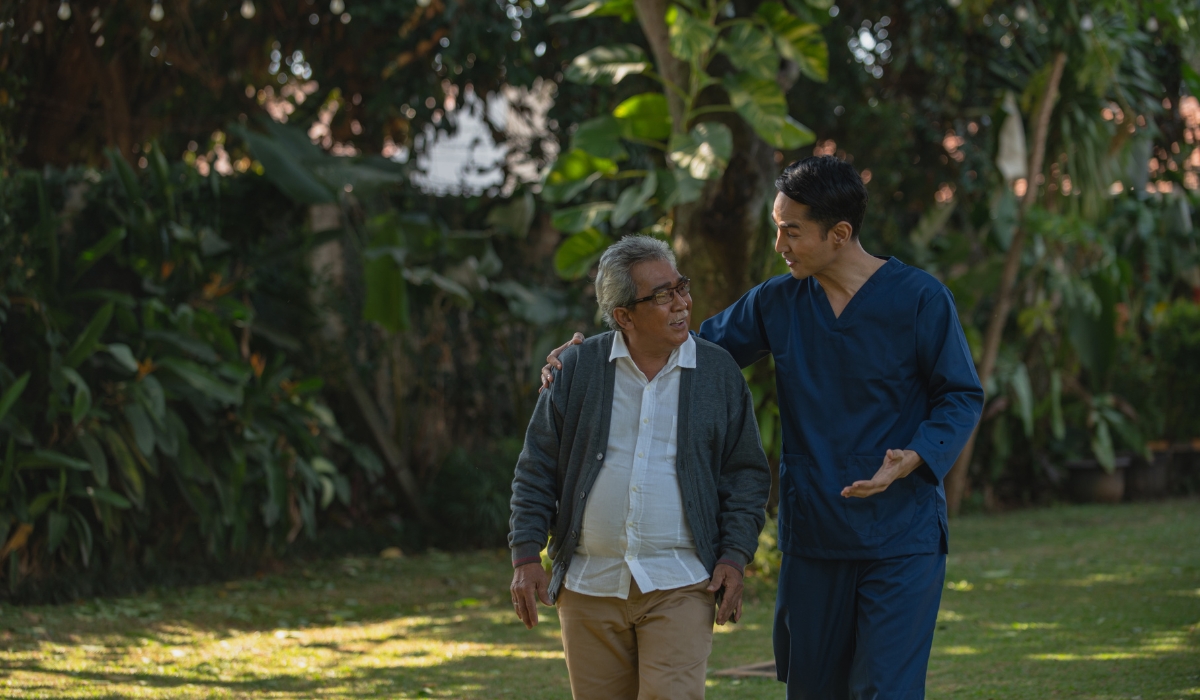
Table of Content
Distinguished Service Nursing Homes: A Comprehensive Guide to Care That Goes Beyond the Basics

The phrase Distinguished Service Nursing Home evokes more than a well‑run facility with clean corridors and competent staff. It signals a philosophy of care that places each resident’s dignity, preferences, and potential at the heart of every decision. Distinguished service is not a slogan; it is a standard built on clinical excellence, human connection, thoughtful design, and relentless improvement. From personalized care plans to chef‑led dining, from sensor‑enabled safety to music therapy for memory care residents, outstanding facilities weave small acts of attentiveness into an experience that feels not institutional, but genuinely human.
This article offers a complete, practical exploration of what sets distinguished service nursing homes apart—how they operate, what families should look for, and how to evaluate quality, culture, and outcomes. Whether you are researching options for a loved one or designing service standards for your own organization, the insights below will help you understand—and demand—care that honors both body and spirit.
The Core Pillars of Distinguished Service
1) Clinical Excellence with a Person‑First Lens
Distinguished homes deliver competent, evidence‑based care—medication management, wound care, disease monitoring, rehabilitation—without losing sight of the person behind the chart. The care team integrates medical goals (e.g., controlling blood sugar or stabilizing blood pressure) with life goals (e.g., attending a grandchild’s wedding, keeping a beloved gardening hobby). This person‑first lens shapes:
Comprehensive assessments at admission and routinely thereafter, covering physical, cognitive, emotional, and social domains.
Interdisciplinary care planning that unites nursing, medicine, therapy, nutrition, social work, and recreation.
Risk prevention for falls, pressure injuries, infections, and medication errors through protocols, technology, and vigilant training.
Outcome tracking that measures not only clinical stability but also comfort, function, and engagement.
2) Relationship‑Centered Culture
Outstanding homes cultivate a culture where every interaction—med pass, housekeeping, mealtime—becomes an opportunity for connection. Relationship‑centered care recognizes that loneliness and loss can be as debilitating as disease. Meaningful elements include:
Consistent staffing so residents see familiar faces and staff know each person’s routines.
Respectful communication using preferred names, languages, and cultural norms.
Shared decision‑making that honors resident autonomy, including the right to refuse care and to take informed risks.
3) Hospitality and Comfort
Distinguished service borrows standards from high‑end hospitality. Expect inviting lounges, warm lighting, comfortable furniture, and private spaces for family visits. Housekeeping and laundry are responsive. Maintenance is proactive. A welcoming environment reduces anxiety and enhances well‑being.
4) Safety Without Institutional Coldness
Safety is essential, but it should not erase the feeling of home. Best‑in‑class facilities blend discreet safety measures—like unobtrusive handrails, slip‑resistant flooring, and low‑profile bed alarms—with décor and lighting choices that feel residential, not clinical.
5) Continuous Improvement and Transparency
Distinguished homes are learning organizations. They monitor key indicators (falls, rehospitalizations, pain control, satisfaction), review incidents without blame, and share understandable data with residents and families. Leadership welcomes feedback and treats complaints as gifts.
Staffing: The Human Engine of Quality
Skill Mix and Ratios
High quality staffing is the strongest predictor of resident outcomes. Distinguished homes invest in adequate nurse‑to‑resident ratios and a balanced skill mix (registered nurses, licensed practical/vocational nurses, nursing assistants). They also leverage rehab therapists, social workers, psychologists, and pharmacists. Even the best programs falter if teams are stretched too thin.
Recruitment and Retention
These homes compete for talent by offering competitive pay, flexible schedules, opportunities for advancement, and a purposeful culture. Reducing turnover matters: continuity improves trust, reduces errors, and preserves organizational memory.
Training and Competency
Orientation covers not only procedures but also communication skills, de‑escalation techniques, cultural humility, and dementia‑capable care. Ongoing education includes simulations (e.g., fall response, choking rescue), case conferences, and micro‑learning modules.
Leadership and Supervision
Unit leaders model calm, coach with curiosity, and remove barriers to good care. They round frequently, ask residents and families what would make today better, and celebrate staff who go the extra mile.
Clinical Programs That Distinguish Excellence
Advanced Nursing Care
Medication safety: barcode administration, pharmacist reviews, and deprescribing initiatives.
Chronic disease management: structured protocols for heart failure, COPD, diabetes, and Parkinson’s.
Pain management: multimodal approaches prioritizing non‑pharmacologic methods and careful opioid stewardship.
Rehabilitation and Restorative Care
Distinguished homes often operate robust short‑stay rehab and long‑term restorative programs. Therapists set functional goals that matter to the resident—walking to the garden, transferring safely, using adaptive devices confidently. Restorative aides help residents maintain gains between therapy sessions.
Memory Care (Dementia‑Capable Services)
Memory care should never be an afterthought. Features include secure but humane wandering paths, cues for orientation, staff trained in validation and redirection, sensory rooms, and personalized engagement plans. Non‑pharmacological interventions—music, reminiscence, aromatherapy, pet therapy—reduce distress and enrich daily life.
Palliative and End‑of‑Life Care
Distinguished homes integrate palliative principles early: symptom control, goals‑of‑care conversations, and spiritual support. When hospice is appropriate, the transition is smooth, with family education and 24/7 responsiveness.
Behavioral Health Support
Depression, anxiety, and adjustment reactions are common in long‑term care. Access to counseling, psychiatric consultation, and staff training in trauma‑informed care can dramatically improve quality of life and reduce avoidable hospitalizations.
Experience Beyond Medicine: Life, Joy, and Meaning
Purposeful Activities and Community Life
An engaging life calendar goes far beyond bingo. Distinguished homes curate events aligned with residents’ identities: book clubs, faith services, art workshops, intergenerational programs with local schools, language cafés, tech tutoring, horticulture, and volunteering opportunities. The goal is not to keep people “busy” but to create purpose.
Dining That Delights and Nourishes
Food is deeply personal. Distinguished homes offer:
Chef‑led menus with seasonal ingredients and appealing presentation.
Flexible dining (multiple seatings, room service options, late breakfast for late risers).
Therapeutic diets that still feel like real food—thickened beverages presented attractively, pureed meals that retain color and shape, and liberalized diets when appropriate.
Cultural and religious accommodations (e.g., halal/kosher options, fasting considerations, meatless Fridays).
Spiritual and Cultural Respect
Residents should feel at home in their traditions. Facilities coordinate with chaplains, imams, priests, rabbis, and spiritual counselors; provide prayer spaces; and recognize diverse holidays. Cultural humility training helps staff support rituals and language needs without stereotyping.
Environment and Design: Healing Through Place
Homelike Layouts
Small neighborhoods with familiar décor reduce anxiety and encourage social contact. Personalization—photos, quilts, favorite chairs—supports identity and orientation.
Sensory Considerations
Light: ample daylight and consistent evening lighting to reduce sundowning.
Sound: acoustics that minimize harsh echoes; quiet mechanical systems.
Smell: rigorous housekeeping balanced with pleasant, mild scents (mindful of sensitivities).
Don’t let hesitation delay the comfort of those who once brought joy to your life. At Lamset Haya, we offer more than just care… we provide dignity, warmth, and professionalism in every detail.
If you are looking for a safe, modern place equipped with the highest standards of comfort for the elderly, we are here for them… and for you.
Contact us now to book a consultation or a visit, and see with your own eyes how we bring life’s beautiful touch back to every moment.
Lamset Haya… where comfort is not a luxury, but a right.
